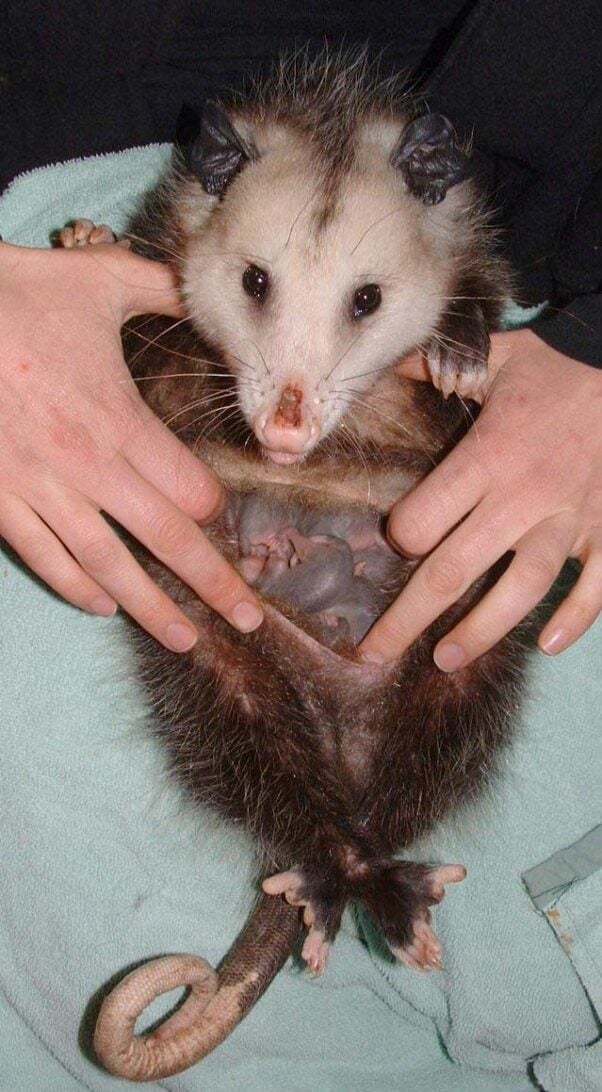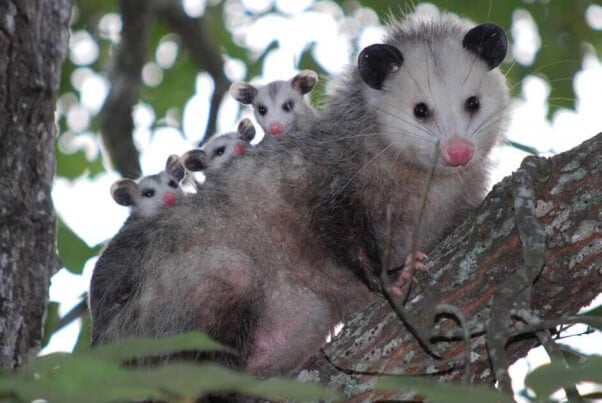Mother Opossums and Babies Are on the Move—Here’s What You Can Do
Did you know that mother opossums carry their young inside pouches on their mid- to lower abdomen? And as warmer weather sets in, mother opossums and their young are increasingly on the move.
In areas where their habitat overlaps with that of humans, these animals face significant risk of being hit by cars or attacked by dogs. Now, one startling photo is reminding people that even if a mother opossum has been injured or killed, her babies may still be alive inside her pouch.

Young opossums in this situation can remain alive and will suffer from dehydration, starvation, or exposure for up to several days.
What You Can Do
Be prepared to help injured animals you may encounter.
Always stop if there is any chance that animals are still alive. Your intervention could help ensure that they don’t suffer for hours or days in agony.
One great way to be ready is to keep an emergency animal rescue kit in your car.
If you encounter an opossum who appears to be dead, note your exact location—including the closest exit number or mile marker if you’re on a highway—and pull over as soon as you can, being sure to put your hazard lights on. If traffic is too busy or dangerous to reach the animal, call animal control or the police for assistance.
Determine if the opossum is dead or alive. Injured animals often labor to breathe or breathe rapidly—observe the chest and abdominal area for movement. If you can’t detect breathing or any other signs of life, you can attempt to touch the animal gently and look for a response. Preferably while wearing a pair of protective gloves, gently pinch a back toe to see if the animal pulls away. If it’s safe and feasible, you can also gently touch one of the eyes in order to test for a blink reflex.
When checking a mother’s pouch for babies, remember: A baby opossum can be as tiny as a fingernail or up to several inches long.
If the animal is still alive or live babies are present, call the nearest veterinarian, animal shelter, or wildlife rehabilitator for advice on what to do. You can also try your local animal control agency or police dispatch. (Program these numbers into your cell phone so that you always have them with you.) If you can’t reach a live person, don’t hesitate to call 911. Check back with dispatch if an officer doesn’t arrive within a few minutes.
If authorities are unable to assist, you can still usually help injured animals yourself if you exercise appropriate caution. They may bite out of pain or fear, so be sure to use a pair of heavy gloves from your emergency rescue kit if you have one. You don’t want to risk causing further harm to any babies you find, so it’s best to transport them while they’re still inside the mother’s pouch if you have no choice but to transport them for treatment yourself.

Always keep an eye out for animals on the move—there may be ways you can help keep them safe. And share this information with your friends and family on social media. It could make a world of difference for an animal—or animals—in need.
